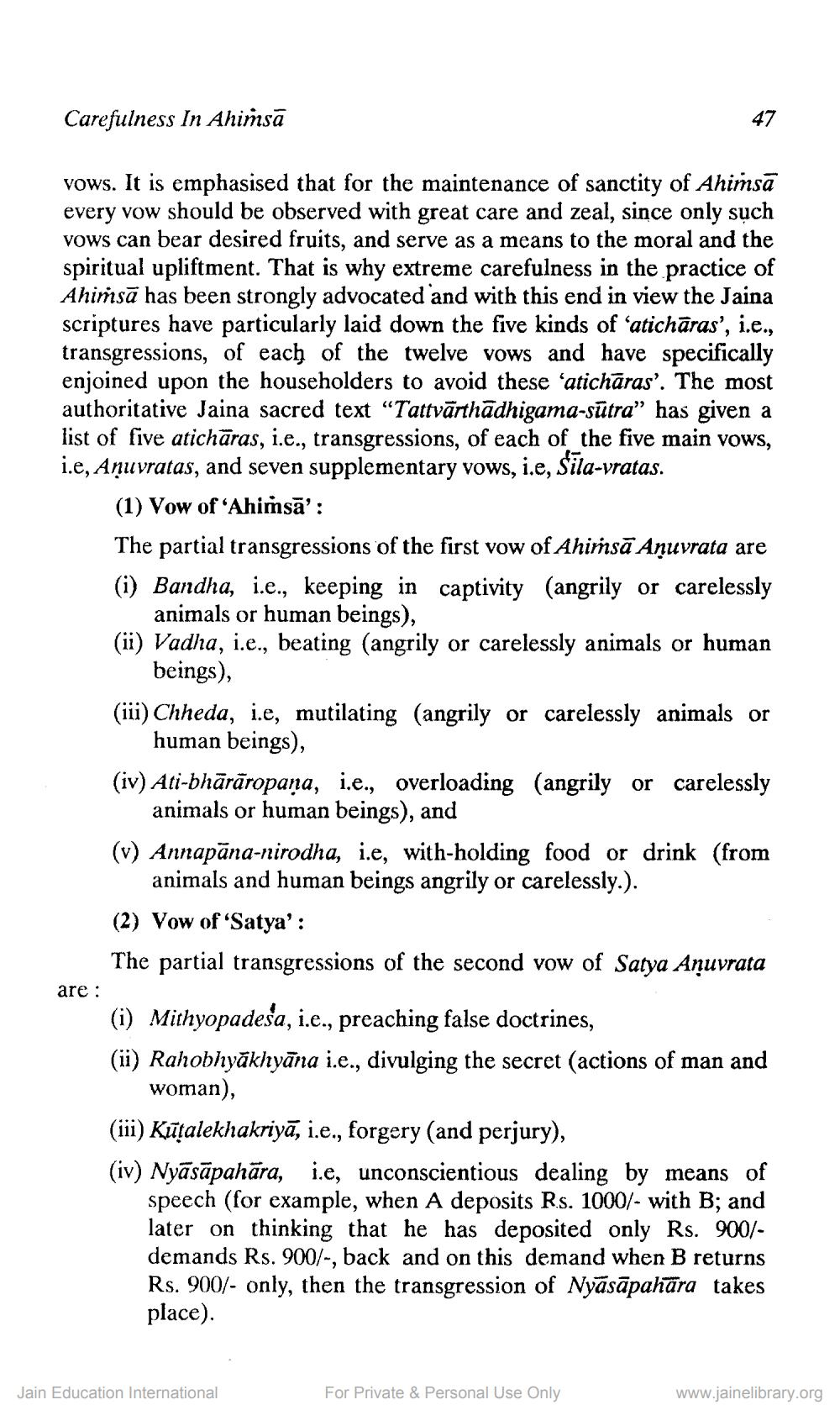________________
Carefulness In Ahiṁsā
87
vows. It is emphasised that for the maintenance of sanctity of Ahimsā every vow should be observed with great care and zeal, since only such vows can bear desired fruits, and serve as a means to the moral and the spiritual upliftment. That is why extreme carefulness in the practice of Ahiṁsā has been strongly advocated and with this end in view the Jaina scriptures have particularly laid down the five kinds of ‘atichāras', i.e., transgressions, of each of the twelve vows and have specifically enjoined upon the householders to avoid these 'atichāras'. The most authoritative Jaina sacred text “Tattvārthādhigama-sūtra” has given a list of five atichāras, i.e., transgressions, of each of the five main vows, i.e, Anuvratas, and seven supplementary vows, i.e, Sila-vratas.
(1) Vow of 'Ahimsā': The partial transgressions of the first vow of Ahimsā Aņuvrata are (i) Bandha, i.e., keeping in captivity (angrily or carelessly
animals or human beings), (ii) Vadha, i.e., beating (angrily or carelessly animals or human
beings), (iii) Chheda, i.e, mutilating (angrily or carelessly animals or
human beings), (iv) Ati-bhārāropana, i.e., overloading (angrily or carelessly
animals or human beings), and (v) Annapāna-nirodha, i.e, with-holding food or drink (from
animals and human beings angrily or carelessly.). (2) Vow of 'Satya': The partial transgressions of the second vow of Satya Anuvrata
are :
(i) Mithyopadesa, i.e., preaching false doctrines, (ii) Rahobhyākhyāna i.e., divulging the secret (actions of man and
woman), (iii) Kūtalekhakriyā, i.e., forgery (and perjury), (iv) Nyāsāpahāra, ie, unconscientious dealing by means of
speech (for example, when A deposits Rs. 1000/- with B; and later on thinking that he has deposited only Rs. 900/demands Rs. 900/-, back and on this demand when B returns Rs. 900/- only, then the transgression of Nyāsāpahāra takes place).
Jain Education International
For Private & Personal Use Only
www.jainelibrary.org




